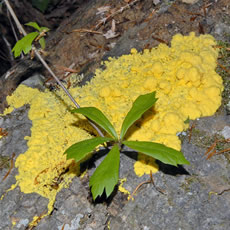The life cycle of a plasmodial slime mold includes sexual and asexual “chapter 5” in “part one” on openalg Plant life: cellular slime molds
Memory Without a Brain: How a Single Cell Slime Mold Makes Smart Decisions
Mold slime cycle life
Celluer and plasmodial slime molds
Slime reproduction molds acellular protista cp kingdom mold cycle life ppt powerpoint presentationMold slime molds cellular reproduction protista cycle life bodies sparknotes unit different gif figure Fungus like protistsSlime mold reproduction and characteristics ( asexual and sexual).
Biology slime protists protist mold molds amoebozoa plasmodium plasmodial characteristics habitats cellular spores evolutionary ecological introductory perspectives majors boundless libretextsSlime mold cycle life molds mould protists lifecycle plasmodial cellular plasmodium microbiology typical biology reproduction aardvark edu cell brought physarum Slime mold life cycleSlime mold cellular fungus advanced biology classification protists slug discoideum dictyostelium shape.

Life cycle of slime mold
Slime molds may be brainless, but they aren’t stupid.Cp protista kingdom cellular molds slime reproduction ppt powerpoint presentation Slime cellular reproduction section chapter molds mold ppt powerpoint presentationMemory without a brain: how a single cell slime mold makes smart decisions.
Slime mold cycle life biology diagram botany science water general myxomycetes biomedicalSlime plasmodial molds cycle life unicellular eukaryotic spores cells produce form microorganisms chapter microbiology openstax into libretexts exist multinucleate figure Spore reproduction in plants and other organismsCharacteristics and classification of fungus-like protists.

Molds slime plasmodial cellular
Groups of protists – introductory biology: evolutionary and ecologicalSlime molds remember — but do they learn? How the slime mold gets organizedSlime plasmodial sexual asexual reproduction.
Slime dog vomit mold physarum polycephalum fungus yellow licked those danger any there cat tree comments calphotos ron wolf 2008Sparknotes: protista: slime molds Slime reproduction myxomycotaPhysarum polycephalum slime mold microscope microinjection decisions scitechdaily biological consists.

Uwl website
Slime physarum molds polycephalum mold learn system celled single remember they but do nervous despite simplicity lack capable its maySpores slime molds spore mold organisms resting fruiting reproductive Slime cell molds mould cellular multicellular nsf fruiting sciencedailyReproduction cellular slime molds.
.








